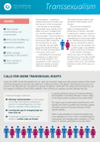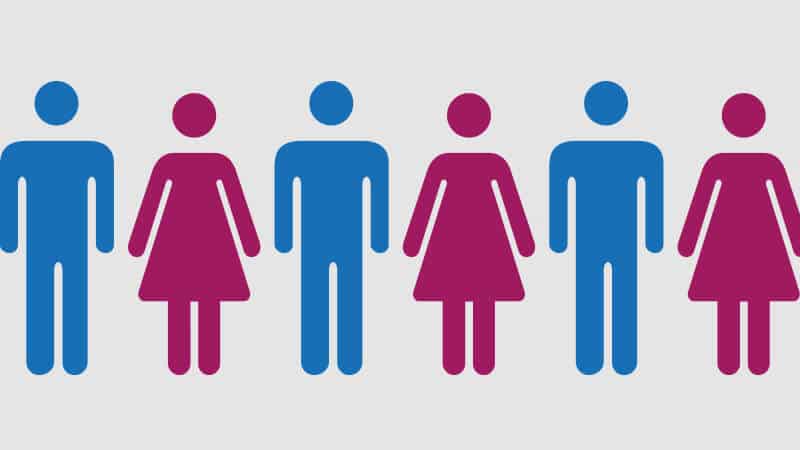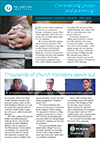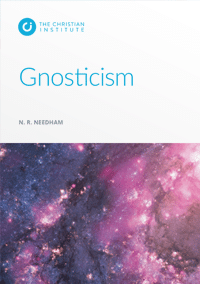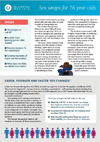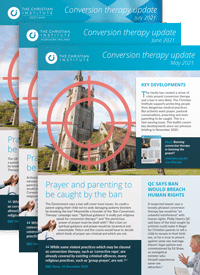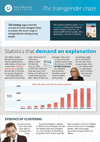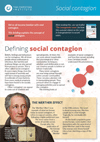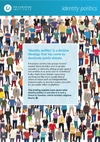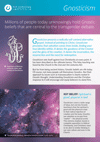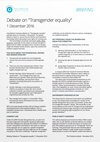Transgender ideology claims that each person has a ‘gender identity’ (an internal sense of gender) which may or may not align with their biological sex. The ‘real you’ is what you feel it to be on the inside.
Underlying this movement is a radical form of self-determination, with its roots in Gnosticism. Subjective feelings overriding objective, biological, genetic reality. Ultimately, it seeks to completely destroy the distinction between men and women that God in his wisdom has created.
Transgender people identify as something other than their birth sex. Many struggle deeply to accept their male or female bodies and choose to undergo medical alterations. They may say they are ‘trapped in the wrong body’.
Under the 2004 Gender Recognition Act, an adult who believes they are a member of the opposite sex and who has lived like that for two years, can apply for a ‘gender recognition certificate’. This means that their legal sex can be changed for many purposes, including on their birth certificate. Only 5,000 have been issued to people in the UK. The Government has now committed to make it even easier by “streamlining and de-medicalising” the process. This could mean allowing people to ‘self-declare’. This would allow someone to change legal sex without any need for the consent of two doctors, or to have lived as a member of the opposite sex for two years.
In recent years transgender ideology has been embraced by the mainstream. Celebrities and much of the media are keen to promote it. Activists are pushing society towards accepting it unquestioningly and shutting down essential debate. This means that instead of providing transgender people with the support they need to help them embrace the bodies they were born with, society is compounding their confusion, with damaging consequences.
Drastic treatments are being promoted, such as puberty-blocking drugs, hormone treatment and ‘sex change’ surgeries. Many go on to regret this course of action. The impact on young people is particularly concerning. In 2018 2,519 children were referred to the NHS’s Gender Identity Development Service – a more than 700% increase over the previous five years.
A man cannot become a woman. A woman cannot become a man. It is not loving to affirm the idea that a person is ‘trapped in the wrong body’ – especially when this could encourage them to undergo medical interventions that are dangerous both physically and psychologically. As Christians we are to speak the truth in love, applying biblical principles without compromise but with compassion (Ephesians 4:15); ultimately pointing them to life-changing repentance and faith in Christ.
Transsexualism – wanting to change physical sex because you feel you are ‘in the wrong body’ – has become an increasingly high-profile issue. People in the public eye have ‘changed their sex’, and the media normalises transsexualism. There has been a corresponding push for greater transsexual rights. This briefing introduces some of the issues at stake.
